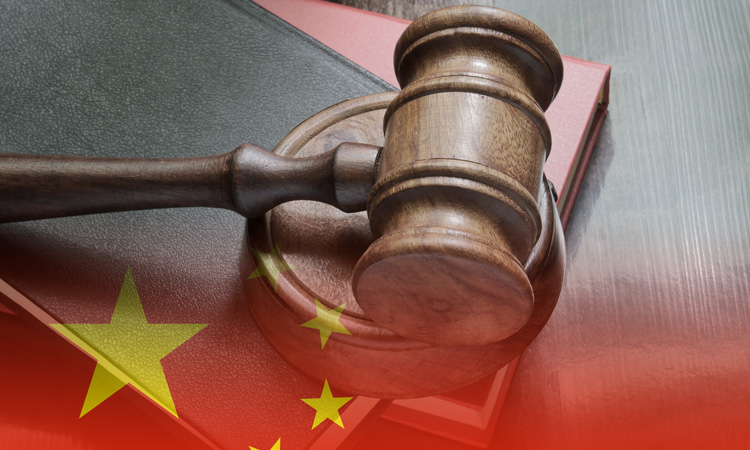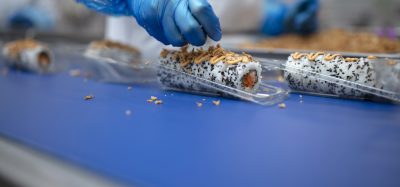The pomelo case: scope of plant variety rights in China clarified
- Like
- Digg
- Del
- Tumblr
- VKontakte
- Buffer
- Love This
- Odnoklassniki
- Meneame
- Blogger
- Amazon
- Yahoo Mail
- Gmail
- AOL
- Newsvine
- HackerNews
- Evernote
- MySpace
- Mail.ru
- Viadeo
- Line
- Comments
- Yummly
- SMS
- Viber
- Telegram
- Subscribe
- Skype
- Facebook Messenger
- Kakao
- LiveJournal
- Yammer
- Edgar
- Fintel
- Mix
- Instapaper
- Copy Link
Posted: 21 May 2020 | Alanna Rennie, Andrew Sim | No comments yet
Andrew Sim, Partner in law firm Baker McKenzie’s Beijing office, and Alanna Rennie, Associate in Baker McKenzie’s Sydney office, detail how China’s Supreme People’s Court came to its ruling on Plant Variety Rights.


On 11 December 2019, the Intellectual Property division of the Supreme People’s Court (SPC) published its highly anticipated decision on the Plant Variety Rights (PVR) infringement case of Cai Xin Guang (Appellant) vs. Guangzhou Runping Company Limited (Defendant), clarifying whether PVR covers material harvested from propagating material offered for sale for final consumption.
Background
The Appellant is the holder of PVR in the pomelo variety San Hong (三红蜜柚 variety). The Appellant discovered that its variety was being extensively propagated and grown by farmers, and also that the Defendant (trading as RT-Mart) was retailing San Hong pomelo in its supermarkets on a large scale. The Appellant chose to initiate action for PVR infringement directly against the Defendant rather than against many small farmers across an extensive area to reduce time and costs.
The Guangzhou Intellectual Property Court dismissed the Appellant’s claim in March 2019. Subsequently, on 11 December 2019, the SPC dismissed the appeal. Although this is disappointing for breeders who want to see PVR protection extended to the fruits of harvest, the judgment clarifies a number of aspects of the scope of PVR in China, which is a welcome development for the industry.
The arguments and the SPC’s reasoning
The key issue before the SPC was whether the San Hong pomelo sold in the Defendant’s supermarkets constituted “propagating material” – propagating material being the limits of the scope of protection under China’s current PVR Regulations.
The SPC noted the scope of the right in China, being confined to certain acts performed in relation to propagating material, namely sales, production, propagation and the repeated use in the production of another variety for commercial purposes.
The SPC further noted the definition of propagating material under Article 5 of the Implementing Rules (Agricultural Part) being planting or propagating material or another part of the plant that can be used to propagate a plant, including seeds, fruit, roots, stems, seedlings, etc.
The key issue before the SPC was whether the San Hong pomelo sold in the Defendant’s supermarkets constituted “propagating material”
The Appellant argued that, although the San Hong pomelo is usually propagated through grafting, the juice vesicles, for instance, can be used to carry out propagation through tissue cultivation technology. The Appellant claimed that juice vesicles are “part of the fruit”, and “can be used to propagate a plant” and therefore fall within the definition of propagating material.
The SPC concluded that the legal provisions only list types of propagating material, and do not clearly determine how to judge when material will be propagating material. On this basis, the SPC determined that the Appellant’s claim lacked legal basis.
How to determine what “propagating material” is
So here comes the question: What constitutes “propagating material”? The SPC determined that in addition to being an item of propagating material as defined above, the material must also be living, possess propagating ability and be able to propagate a plant which possesses the same traits and characteristics as the protected variety (ie, propagate the variety true-to-type).
The SPC also ruled on how to determine whether there has been an infringement if the material can be both propagating material and harvested material
It follows that “propagating material” cannot be determined by the theory of totipotency. According to the theory, the DNA sequence of a variety can be replicated outside the plant and be used to propagate further plant material. However, the SPC held that in order to be “propagating material” of a PVR protected plant variety, the material must be able to propagate that variety true-to-type. The SPC concluded that simply declaring a variety to be propagating material based on totipotency does not accord with the legal requirements for PVR in China, and would result in the undesirable situation where all plant material, without distinction, is classified as propagating material.
Seller’s intention matters if the material can be both propagating material and harvested material
The SPC also ruled on how to determine whether there has been an infringement if the material can be both propagating material and harvested material. If the conduct involves sales, the court must examine whether the seller’s intention is to sell the material as propagating material or as harvested material. If the alleged conduct is production, and the user counter-argues that their use is not an infringing act of “production”, the court must examine what the conduct is in fact, ie whether the material will be used directly for consumption or for propagation.
Growing propagating material for harvested material without permission is an infringing act
Importantly, the SPC clarified a long-debated question: Whether growing propagating material without the PVR holder’s permission, in order to produce harvested material, constitutes the infringing act of “producing” propagating material? To the satisfaction of breeders worldwide, the answer given by the SPC is affirmative.
The decision
Based on the above, the SPC determined that the Defendant’s sales of the San Hong pomelo did not infringe the Appellant’s PVR as the fruit of the San Hong variety could not be used to propagate the variety true-to-type, and even if it could, the seller’s intention was to sell the fruit for final consumption and not for propagation. In reaching this conclusion, the SPC relied on expert assistance which found that it would be difficult to propagate the variety true-to-type from the seeds because not all seeds in the fruit possess propagation capabilities, furthermore, those seeds that do possess propagation capability do not always propagate the variety true-to-type. With respect to the juice vesicles, the SPC held that under the current state of technology, the juice vesicles could not always propagate the variety true-to-type.
What next?
This is the first PVR infringement case since the establishment of the Intellectual Property Rights Tribunal under the SPC in late 2018. The legal clarity it provides is indicative of the significant progress being made in relation to PVR in China.
In early 2019, China released a draft revision to its PVR Regulations which includes protection for harvested material if the rights holder has not had a reasonable opportunity to exercise its rights over the propagating material. The revised regulations are expected to be released this year, and we look forward to further developments in this regard.
About the authors


Andrew Sim is the Office Lead for Consumer Goods and Retail Industry in Beijing Office. His practice area includes product recall, consumer complaints, franchise registration, product quality issues and breaches of advertiser regulations. Mr. Sim heads the Food and Beverage (F&B) Industry practice group and advises on all F&B related areas, including consumer, regulatory, food safety, advertisement as well as internet laws and regulations. He also heads the Plant Variety Rights practice, which includes registration and enforcement of plant breeders’ rights.


Alanna Rennie is an Associate in Baker McKenzie‘s Sydney office. She has experience in mergers and acquisitions and plant intellectual property. Alanna has played a central role in initiating the firm’s global Plant Variety Initiative and has guided companies on plant variety commercialisation and enforcement strategies in China. Alanna is admitted in Australia and holds a bachelor of laws (honours) from Bond University and Masters in Chinese Law from Tsinghua University.









